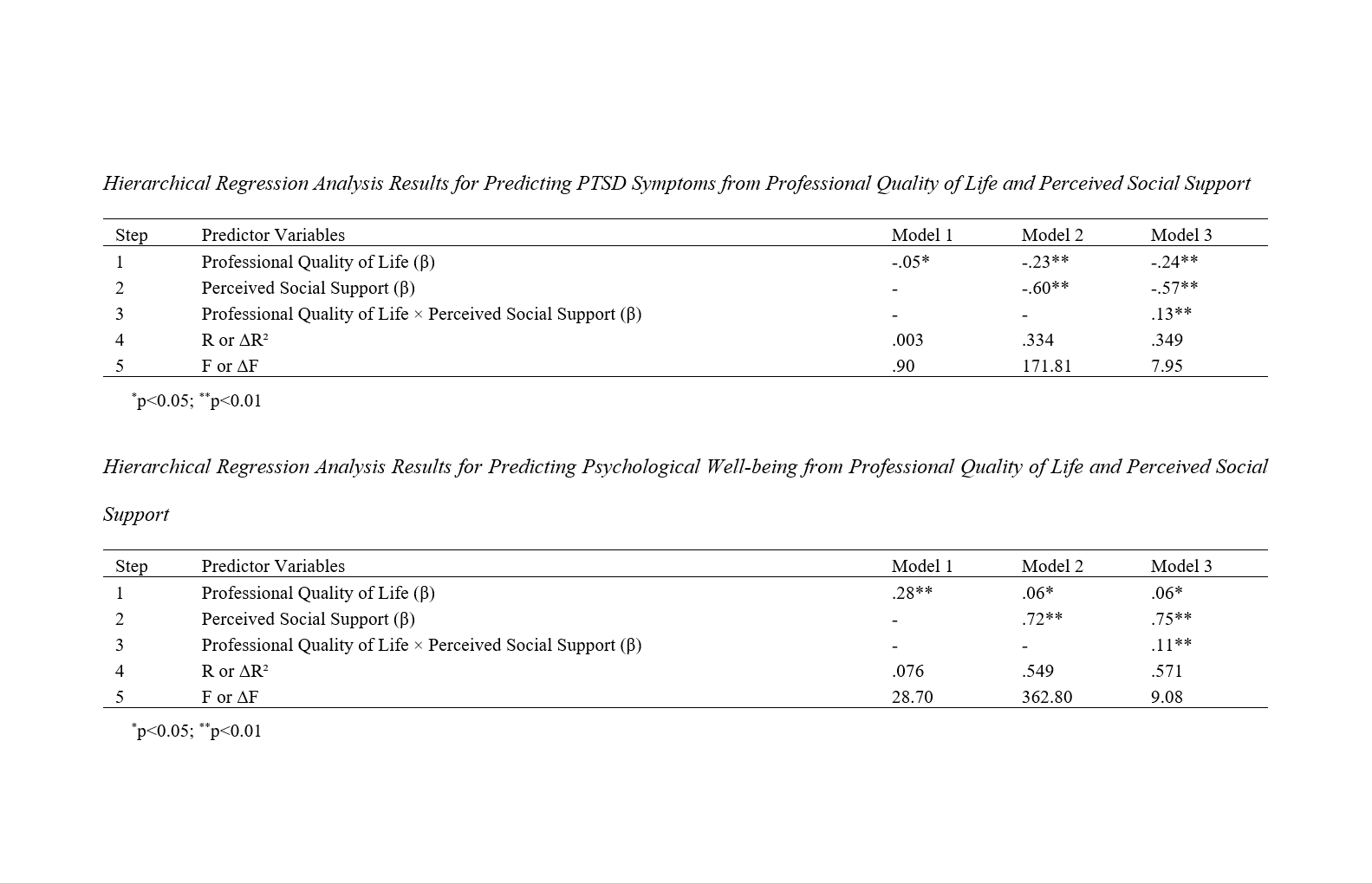The Moderating Role of Perceived Social Support in the Relationship Between Professional Quality of Life, PTSD Symptoms, and Psychological Well-Being of Nurses in Karbala
Keywords:
Perceived Social Support, Professional Quality of Life, PTSD Symptoms, Psychological Well-Being, NursesAbstract
Mental health is one of the most important factors for the empowerment and optimal performance of nurses. The present study aimed to determine the moderating role of perceived social support in the relationship between professional quality of life, PTSD symptoms, and psychological well-being of nurses in Karbala. The research method is correlational with a hierarchical regression analysis. The statistical population included all nurses in the hospitals of Karbala, Iraq, with 349 individuals selected as the sample through convenience sampling. Data were collected using the Professional Quality of Life Scale (Stamm, 2010), PTSD Symptoms Scale (Wheeler et al., 1993), Psychological Well-Being Scale (Ryff & Keyes, 1983), and Perceived Social Support Scale (Zimet et al., 1988). Data analysis was conducted using Pearson correlation coefficient and hierarchical regression analysis with SPSS 26 software. Perceived social support moderates the relationship between professional quality of life and PTSD symptoms as well as psychological well-being (p < .01). When perceived social support is high, the relationship between professional quality of life and PTSD symptoms and psychological well-being is stronger (p < .01). Perceived social support and professional quality of life are essential for promoting the well-being and health of nurses in work environments.
Downloads

Downloads
Additional Files
Published
License
Copyright (c) 2024 Abbas Adnan Kamel (Author); Ali Mahdad (Corresponding Author); Ahmed Abdulkadhim Johni, Ilnaz Sajjadian (Author)

This work is licensed under a Creative Commons Attribution-NonCommercial 4.0 International License.

























